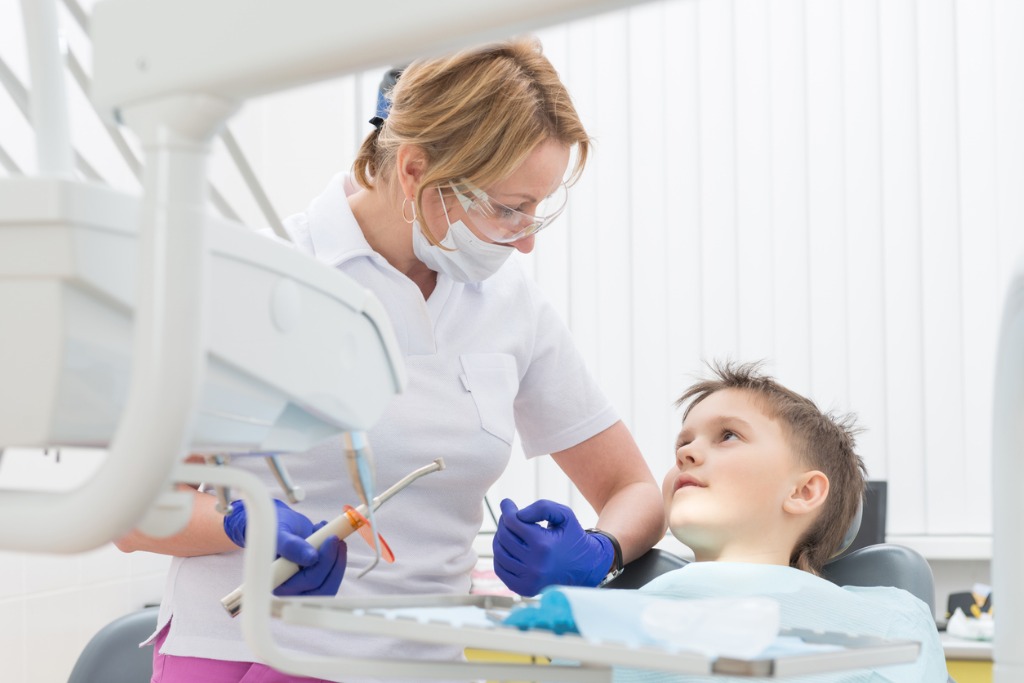As devoted parents, safeguarding the health and well-being of our children remains our utmost concern. Among the numerous facets of their well-being, one critical area that frequently escapes our attention is their dental hygiene. Neglecting tooth decay prevention in young children can result in a multitude of problems, ranging from discomfort and pain to more severe dental complications. In this informative blog post, we will delve into the vital measures parents can adopt to thwart tooth decay in their little ones, with a special emphasis on the expert guidance offered by Pristine Pediatric Dentistry.
Start Early:
Dental care should begin even before your child’s first tooth appears. Clean their gums with a soft, damp cloth after feedings. Once the first tooth arrives, switch to a small, soft-bristled toothbrush and a smear of fluoride toothpaste.
Regular Dental Checkups:
Schedule your child’s first dental appointment by their first birthday or when their first tooth erupts, whichever comes first. Regular checkups with a pediatric dentist can help catch any dental issues early and provide guidance on proper oral care.
Teach Proper Brushing and Flossing:
Demonstrate and encourage your child to brush their teeth twice a day using a fluoride toothpaste and a child-sized toothbrush. As they grow older, introduce flossing as part of their routine. Make it fun by using colorful, kid-friendly dental products.
Avoid Sugary Drinks and Snacks:
Limit your child’s consumption of sugary beverages and snacks. These can contribute to tooth decay. Opt for water or milk instead of soda and choose healthy snacks like fruits and vegetables over sugary treats.
Be Mindful of Bedtime Bottles:
Avoid putting your child to bed with a bottle of milk or juice. The sugars in these liquids can linger on their teeth and lead to decay. If you do give a bedtime bottle, make sure it’s filled with water.
Use Fluoridated Water:
If your tap water is not fluoridated, ask your dentist about fluoride supplements. Fluoride helps strengthen teeth and prevent cavities.
Encourage a Balanced Diet:
A well-balanced diet is crucial for overall health, including oral health. Ensure your child gets plenty of calcium, which is essential for strong teeth and bones.
Lead by Example:
Children often learn by observing their parents. Make your own dental hygiene routine a family affair, so your child sees the importance of taking care of their teeth.
Address Thumb-Sucking and Pacifier Use:
If your child continues thumb-sucking or using a pacifier beyond infancy, consult your dentist for guidance. Prolonged use can affect tooth alignment.
Stay Informed:
Stay updated on the latest dental recommendations and guidelines for children’s oral health. Knowledge is key to providing the best care for your little one’s teeth.
Conclusion:
Preventing tooth decay in young children is a proactive effort that starts early and involves consistent oral care, a healthy diet, and regular dental checkups. By following these steps and making dental hygiene a part of your child’s daily routine, you can help them maintain a bright and healthy smile for years to come.
At Pristine Pediatric Dentistry, we offer top-notch pediatric dental care with the utmost convenience. You can find us at two easily accessible locations: 1512 Avenue Z, Brooklyn, NY 11235, and 305 NJ-17, Paramus, NJ 07652. Our dedicated team, under the leadership of Dr. Leona, is committed to delivering exceptional dental care tailored to your child’s needs.
Our primary objective is to cultivate a positive and nurturing dental experience, ensuring your child’s smile receives the best possible care. Take the first step towards your child’s optimal pediatric dental health by scheduling an appointment at one of our offices today. Join us in making your child’s well-being and their beautiful smiles a top priority!
Disclaimer: The information provided in this blog is for educational purposes only and is not intended as a substitute for professional dental advice. Please consult with your pediatric dentist for personalized recommendations for your child’s oral health.


